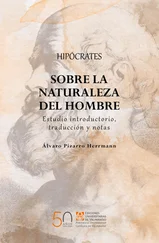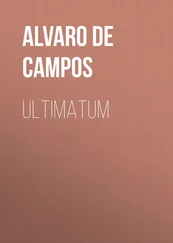In the days following these events, there was some discussion about what to do with Ishi, but finally everyone agreed that the best place for the last surviving aborigine in the United States was, ultimately, a museum. Ishi spent the rest of his life there, much more comfortable and seemingly more satisfied than if he had been out in the woods. At first he lived in the guest rooms, then in the staff quarters, and at last in the sunniest of the exhibition rooms. There they set up a bed for him so that he could die from tuberculosis in peace and comfort three years after surrendering to white people.
It’s probably true that this story’s power is located simply in the events themselves; trying to articulate its meaning always ends up making it seem like cheap sentiment, or, worse yet, a parable of virtuous political intentions; the lowest sort of affectation, guaranteed. To spin metaphors out of a story that means something on its own terms is like being in love with love: however powerful it might seem at first, it always turns out badly.
Whichever way you want to read it, the story of the man who earned his living as a museum piece always seemed fascinating and revealing to me, mostly due to the fact that, despite everything, despite all the good and seemingly honest friends he made among the community of doctors and anthropologists who studied him, the Indian never wanted to tell them his real name. Until the last day of his life he always asked them to call him Ishi, which in Yana means “Man”: apparently, when one is the last surviving example of something, the name of the species suffices.
I’m increasingly convinced that the problem with Ishi’s story is one of literalness: it means what it means and not what I want it to mean.
Three years ago, when I was still living in Washington, D.C. and had just turned thirty, I decided to take a Sunday off from the hellish move I was making to Boston, where I now live. It’s not that I was nostalgic, exactly, about quitting the nation’s capital; I’d spent some good years there but the last ones had been pretty depressing. I simply felt like saying good-bye to the city where I’d finished growing up, in which my ex-wife and children were going to stay with the vague promise that the four of us would live together again once our jobs permitted it, and that this time things would work out. During a pathetic evening out on the town — a sham of everything that we’d lost — we went to have dinner at our favorite restaurant and afterward to a place with a patio and French pretensions, which at that time served the best coffee in D.C.
We were eating cheesecake for dessert, each of us concentrating on playing our assigned role, when along came a redhead, striding between the tables with the self-assurance of an avenging angel. She was wearing a T-shirt emblazoned with the word Redhead . When I saw her, I felt sure that such literalness could infect the world with the same type of metaphysical disequilibrium that dominates some novels by Eça de Queiroz: each time that redhead puts on that T-shirt which says Redhead , I told my ex-wife, an Indian in Mexico dies. I think she got my joke, or got it well enough, because on the last trip I made to Mexico, I’d brought back a T-shirt as a gag gift, which read: Eres un pendejo , “You’re an idiot.” Below that, in parentheses: ( You are my friend) .
Of course, I don’t really believe that a Mexican Indian dies each time the redhead wears her Redhead T-shirt, but it does seem to me that such literalness can end up being noxious, although I’m not quite sure for what.
Or maybe I do: noxious for oneself. I know from experience that the literal can be really bad luck. Not long after having made such a snide remark about that idiot (friend) in the T-shirt in that D.C. café, I went to give a series of readings in Berlin. I’ve suffered some memorable disasters thanks to these types of event: for one reason or another, some kind of weirdo always decides to attend the talk you’re giving, no matter how boring or unbearable the topic. If fame is what you’re after, reading a story or an excerpt from a novel in public is usually a lesson in why one shouldn’t be a writer.
Berlin consisted of three public appearances. The first was a roundtable on some of those open-vein themes that help Europeans and gringos of good conscience feel really fine about themselves but which make us Latin Americans who are invited to participate feel more like artifacts on display in a compassion museum. There were also two proper literary readings: one was in a theater, with something of an actual audience — it was free, it was raining, and there was wine — and the other was in a café that seemed like it must have been highly fashionable when East Berlin was still communist. The café was called Einstein, to which was added the strange qualifier Under the Lindens .
The name of the place stood out to me the first time I read it listed on my schedule of appearances in the German capital, but it left me with a sense of deep foreboding when, the next morning, while practicing the worst kind of tourism in the neighborhood around the Brandenburg Gate, I found myself right in front of the place. It turned out that its strange “subtitle” came from its indeed being located on a street — similar to La Rambla in Barcelona — called Unter den Linden precisely because it runs beneath some linden trees.
I was born in a city, Mexico City, where there’s an overgrown forest without any wild animals called “Desert of the Lions”; for this reason, the Adamic Teuton imagination, so very humorless, gave me the chills. My nephew, whose name is Jorge Arrieta, summed it up with all the crystal clarity of his eight years during an argument with one of my kids. It was last August and the three of us had gone to my parents’ house for a vacation that turned out to be so unpleasant we had to cut it short: That game, he spat, is about as much fun as playing Call Yourself Jorge Arrieta.
In any event, in that café called Einstein Under the Lindens I had the worst experience that one can have in such cases: it wasn’t a totally empty house; exactly two ticket holders showed up, so that the moderator, the translator, the actor who was going to read my story in German, and I all crowded round a table at the front of an auditorium that felt like the loneliest ship on the seas, inhabited as it was by only a young woman and her mother. Not only did we still have to read, we did the whole roundtable routine — complete with simultaneous translations — because the two women had paid, and in a city where a street that runs under linden trees is called “Under the Lindens,” you deliver the fifty-minute show that you promised.
Ishi never lacked for a public: four days a week he gave a presentation in the reception hall of the museum during which he sang some ritual song, kindled a fire by rubbing two sticks together, and showed the visitors how to fashion bows and arrows with materials brought from the canyons near Oroville. These things were delivered to him there in the museum — despite the anthropologists’ insistence, he didn’t want to return to his homeland. Two other days of the week he spent dusting and mopping all the rooms in the museum, except for one of them containing an exhibit of mummies and funeral offerings that Ishi always refused to enter. On Mondays he would usually head out early to take the streetcar down to the sea.
It wasn’t until the last summer of his life that he agreed, with great reluctance, and perhaps because he felt that he had little time left, to return to the canyons: in August of 1913 he went with his doctor and the museum director to recreate the life in the wild that he had led until the moment he’d surrendered at the slaughterhouse. The three of them spent several wonderful days living naked in the outdoors, eating whatever they could hunt in the forest.
Читать дальше












